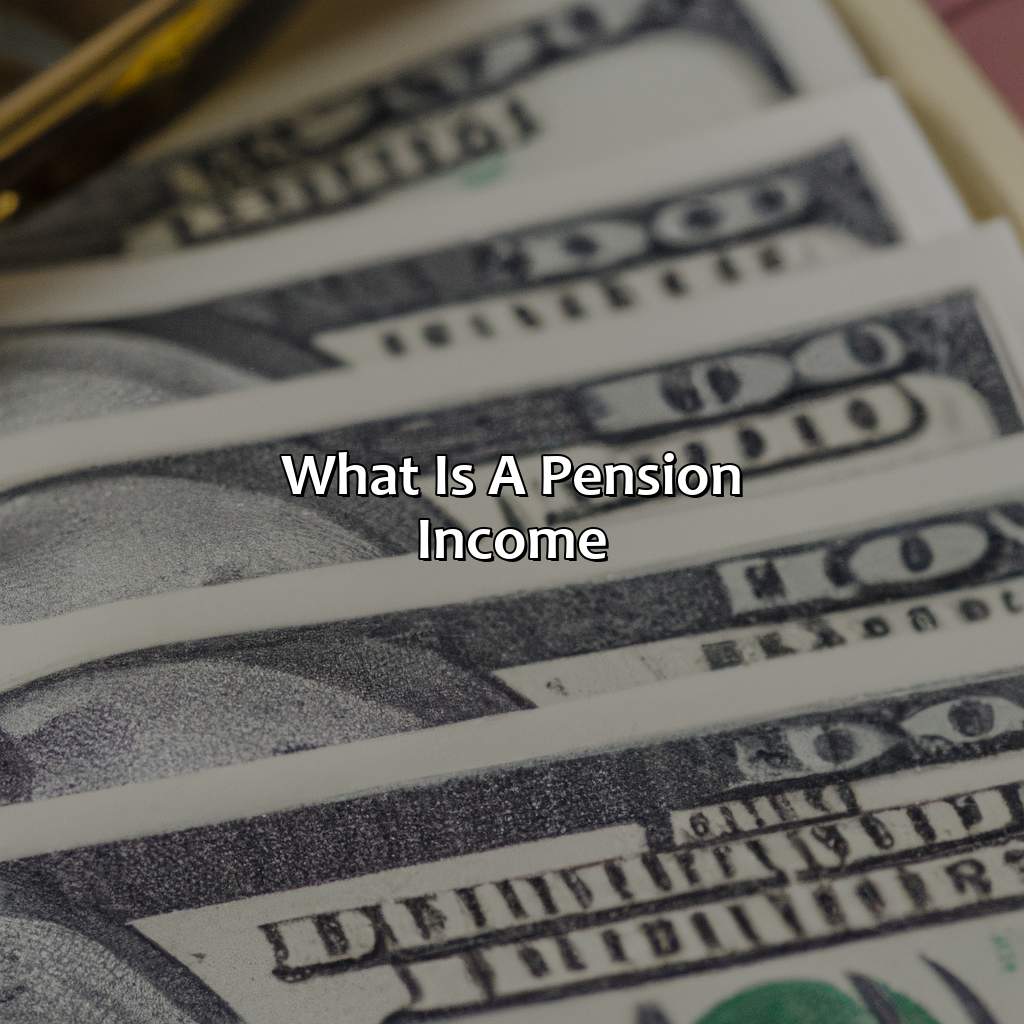What Is A Pension Income?
Key Takeaways:
- Pension income is a type of retirement income that is typically paid out by an employer-sponsored plan or government program to provide financial support in retirement.
- There are two main types of pension income: defined benefit pension plans, which offer a guaranteed retirement income based on a formula that takes into account factors such as salary and years of service, and defined contribution pension plans, which are retirement accounts that are funded by employer and/or employee contributions and investment returns.
- The amount of pension income a person receives is affected by factors such as their age at retirement, length of service, salary earned, and contributions made. It is also subject to taxation, which can have significant impacts on the amount of retirement income a person ultimately receives.
Are you worried about how to ensure a steady income after retirement? Pension income can provide the key to financial stability, but what exactly is a pension? Read on to learn more about the benefits of pension income and how to make the most of it.
Defining Pension Income
Pension Income – An Explanation of Retirement Earnings
Pension income refers to the payments received by an individual after they retire from their employment or service. The income is typically from a pension plan, which can be defined as an investment made by an employer or an individual to provide financial support during retirement. The amount of pension income one receives is determined by various factors, including the type of pension plan, the duration of employment, and the amount invested.
It is important to note that pension income is different from the retirement savings one accumulates over time. Retirement savings refer to the money saved by an individual during their career, while pension income is a regular payment given after retirement.
To understand more about what is ee pension, it’s important to differentiate between pension income and retirement savings.
Pension income can be received in different forms, including annuities, which are regular payments made for a specific duration or life, or alternate arrangements such as a lump sum. The amount of pension income one receives is often determined by the amount invested during their career, and the type of pension plan the individual had subscribed to. If you’re wondering about how long a pension lasts, it depends on the type of pension plan and the individual’s circumstances.
In a 2019 study conducted by the Bureau of Labor Statistics, it was found that only 55% of private industry workers participated in a retirement savings plan, highlighting the importance of understanding and planning for pension income as a necessary source of retirement earnings.
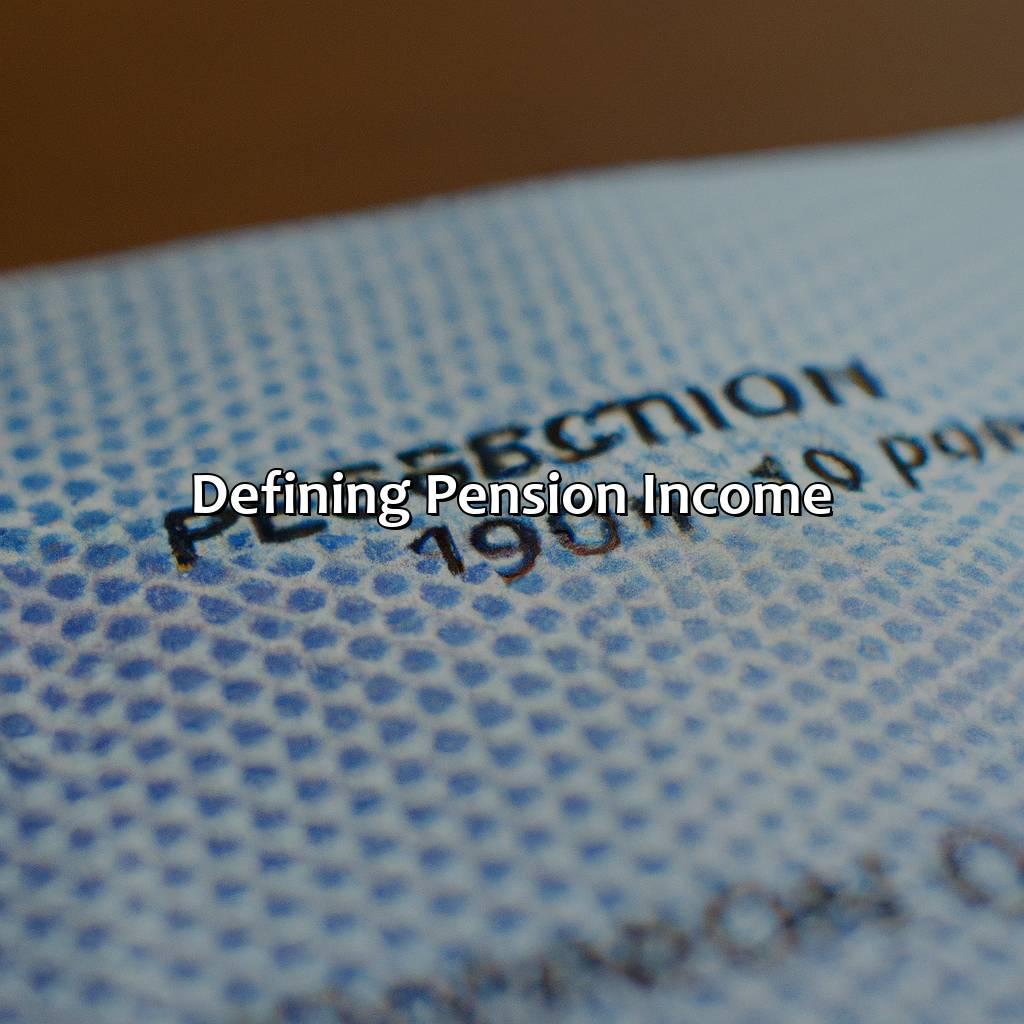
Image credits: retiregenz.com by Adam Arnold
Types of Pension Income
Pension Income Varieties
The sources that provide funds in retirement are defined as Pension Income Varieties. These can be accomplished either domestically or internationally based on specific scenarios or preferences.
Types of Pension Income Explained
- Government Pensions – Monthly payments come from state-funded pension systems, such as social security and civil service retirement plans.
- Company Pensions – Monthly payments come from an employer’s pension plan, such as a 401k or IRA.
- Personal Pensions – Monthly payments come from personal retirement accounts, such as a traditional or Roth IRA, and annuity policies with life insurance companies.
- Retirement Savings Accounts – Payments come from pre-tax contributions and grow tax-deferred until distributions begin. Typical with 401k and IRA.
- Annuity Payments – These are payments issued every month for a fixed term or year, offering a blend of a lifetime income with investment security.
- Income from Investments – This type of income is unique and unconventional. Monthly payments come from investments using dividends, rent, interest, or capital gains.
Additional Information on Types of Pension Income
Each variety of pension income consists of its own unique features and policies, depending on the administering institution and account type. It is essential to consider the needs and objectives of retirees before implementing any plan.
If you’re wondering what is S pension, it is a type of pension plan that is specifically designed for self-employed individuals in Germany.
Historical Anecdote for Pension Income Types
During World War II, the U.S. government introduced a pension plan to provide financial security for retired soldiers. This plan eventually turned into the Social Security program, which is still in effect today. Pension plans have since advanced to include multiple types of plans offering various benefits and terms.
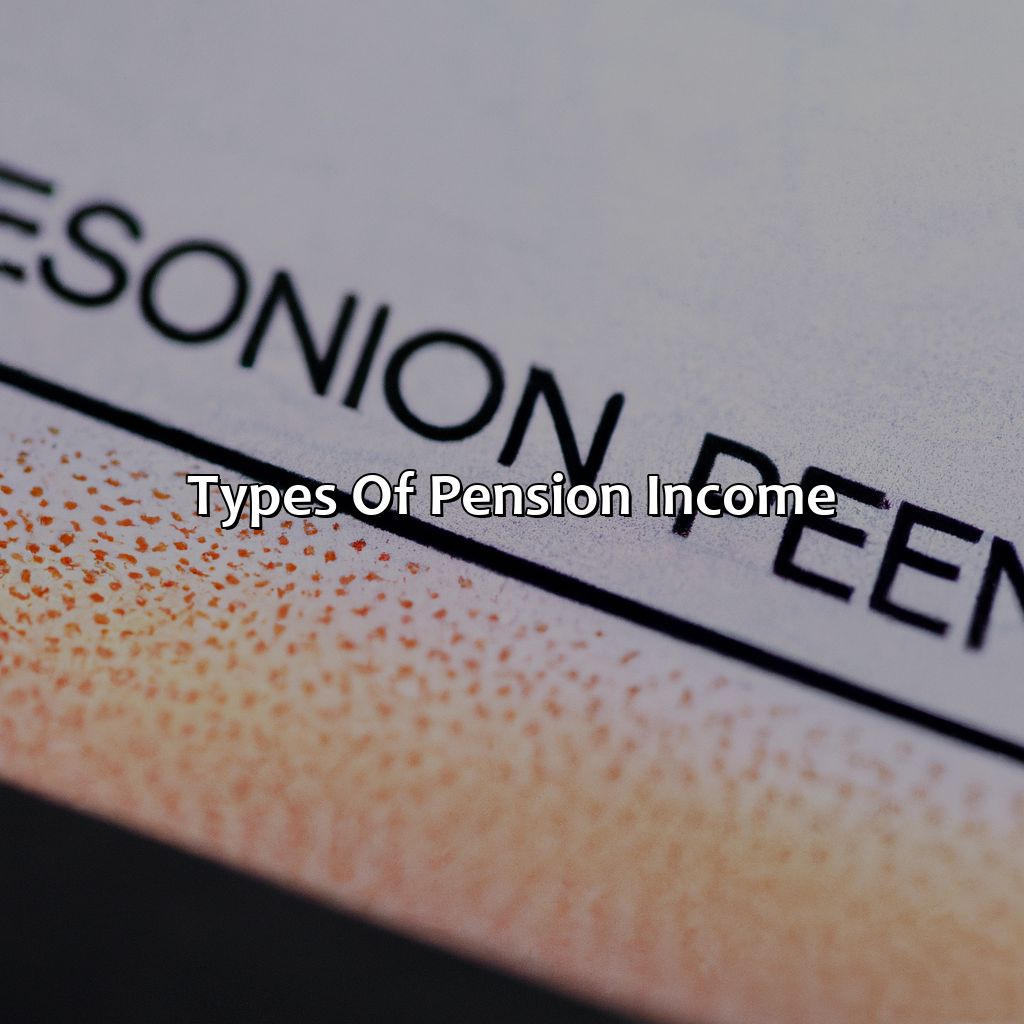
Image credits: retiregenz.com by Harry Arnold
How Pension Income Works
The Mechanics of Pension Income
Pension income is a regular payment made to retirees who have invested in retirement plans during their working years. The amount of pension income received depends on various factors, such as the contribution made, years of service and current market interest rate.
The process of pension income starts when an individual invests a portion of their salary into a qualified pension plan. This plan then invests this money in different investment vehicles like stocks, bonds, and mutual funds to generate returns. The returns earned on these investments are used to pay the pension income to retirees after their retirement. If you’re wondering how much an average pension is, check out this helpful resource.
It’s important to note that the pension income received is taxed as regular income based on the individual’s current tax bracket. Additionally, the amount of pension income received is not guaranteed and can fluctuate based on the performance of the investment returns.
Pension income is a crucial part of any retirement plan and should be taken seriously by individuals. Do not miss out on investing in a pension plan early on as it may impact your retirement years negatively. Take action now and secure your pension income for the future.

Image credits: retiregenz.com by Joel Jones
Factors Affecting Pension Income
Pension Income Influencing Factors:
A retiree’s pension income is determined by several factors, such as their retirement age, employment history, and contribution amount. Pension schemes offer different types of benefits, such as defined benefit or defined contribution, which can also influence income. To learn more about the pension supplement, it’s important to understand how these factors affect your pension income.
Additionally, choosing an annuity or a pension drawdown plan to receive pension payments can affect the amount of pension income. Furthermore, factors such as mortality rates, inflation, and investment returns can also impact how much pension is in the UK.
To optimize pension income, retirees should consider their longevity and personal circumstances when selecting a pension plan. They should also seek expert advice on what a pension can offer and tax implications to make informed decisions about their pension income.
Pro Tip: Maximizing pension income requires careful planning, informed decisions, and professional guidance.
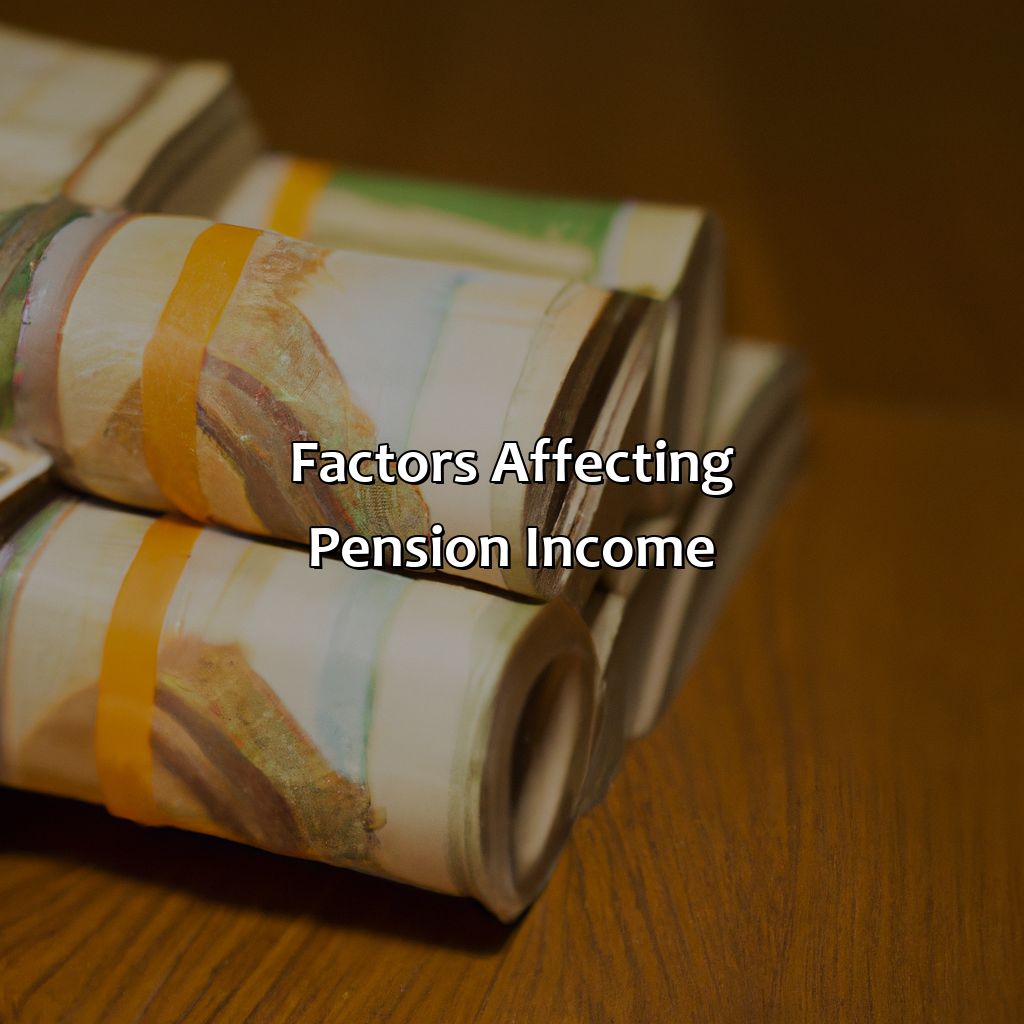
Image credits: retiregenz.com by David Woodhock
Taxation of Pension Income
Pension income is subject to taxation, meaning that a portion of it will be paid in taxes to the government. The tax rates may vary depending on the type of pension income received, such as defined benefit pensions, defined contribution plans or annuities. The tax rules differ for each type of pension income and can be complex. For instance, some income may be taxed at regular income tax rates, while others may be subject to lower rates as qualified dividends or capital gains. It is essential to understand the tax implications of your pension income to avoid any errors and to maximize your retirement benefits.
Retirees who receive pension income may also be required to report taxes on their social security benefits if their combined income exceeds a certain limit set by the IRS. Additionally, retirees who have reached the age of 72 will be required to take distributions from their defined contribution plans and traditional IRAs, known as required minimum distributions (RMDs), and pay taxes on those distributions.
Pro Tip: Consider consulting a tax professional or financial advisor to understand the tax implications of your pension income and to minimize your tax liability.
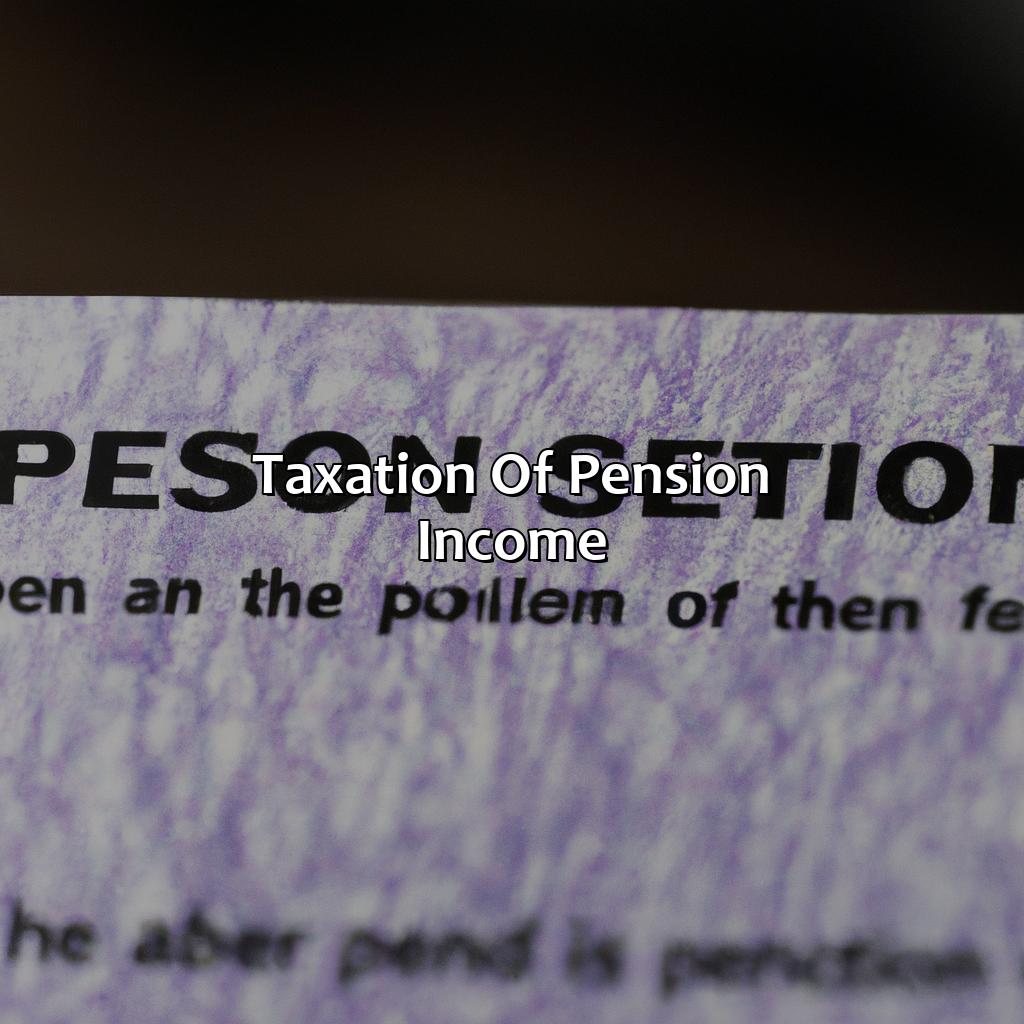
Image credits: retiregenz.com by Joel Jones
Advantages and Disadvantages of Pension Income
Pension Income: Pros and Cons.
- Advantages of Pension Income:
- Guaranteed Income: Pension income provides a steady income in retirement, which can help to meet daily expenses without the fear of running out of income.
- Tax Benefits: Pension income can offer tax advantages that other income streams may not have. For example, depending on your country s tax laws, a portion of your pension income may be tax-free.
- Financial Security: Pension income can offer peace of mind and financial security, knowing that you will have consistent monthly income to rely on in retirement.
- Disadvantages of Pension Income:
- Fixed Income: Pension income is often a fixed amount which can reduce over time when inflation occurs, and may not always keep up with the rising cost of living.
- Limited Access to Funds: Pension income may restrict your access to your capital, limiting your ability to invest, spend, or provide financial help to your loved ones.
- Uncertainty: Pension schemes may suffer from market volatility or mismanagement, which can impact payouts or even result in a loss of income or retirement benefits.
It is important to note that pension income can vary in amount depending on factors such as salary, length of service, and the type of pension scheme. In addition, it is often wise to plan and diversify your sources of retirement income to ensure that you have adequate resources to meet your retirement needs.
For instance, if you are a nurse, you may be wondering “What is the average pension for a nurse?” Find out more about it here.
The first company pension scheme is credited to the American Express Railroad Company in 1875. The scheme was designed to provide retirement benefits to its workers, which inspired other companies to offer similar plans. Today, pension schemes have evolved in different forms, including defined benefit and defined contribution schemes.
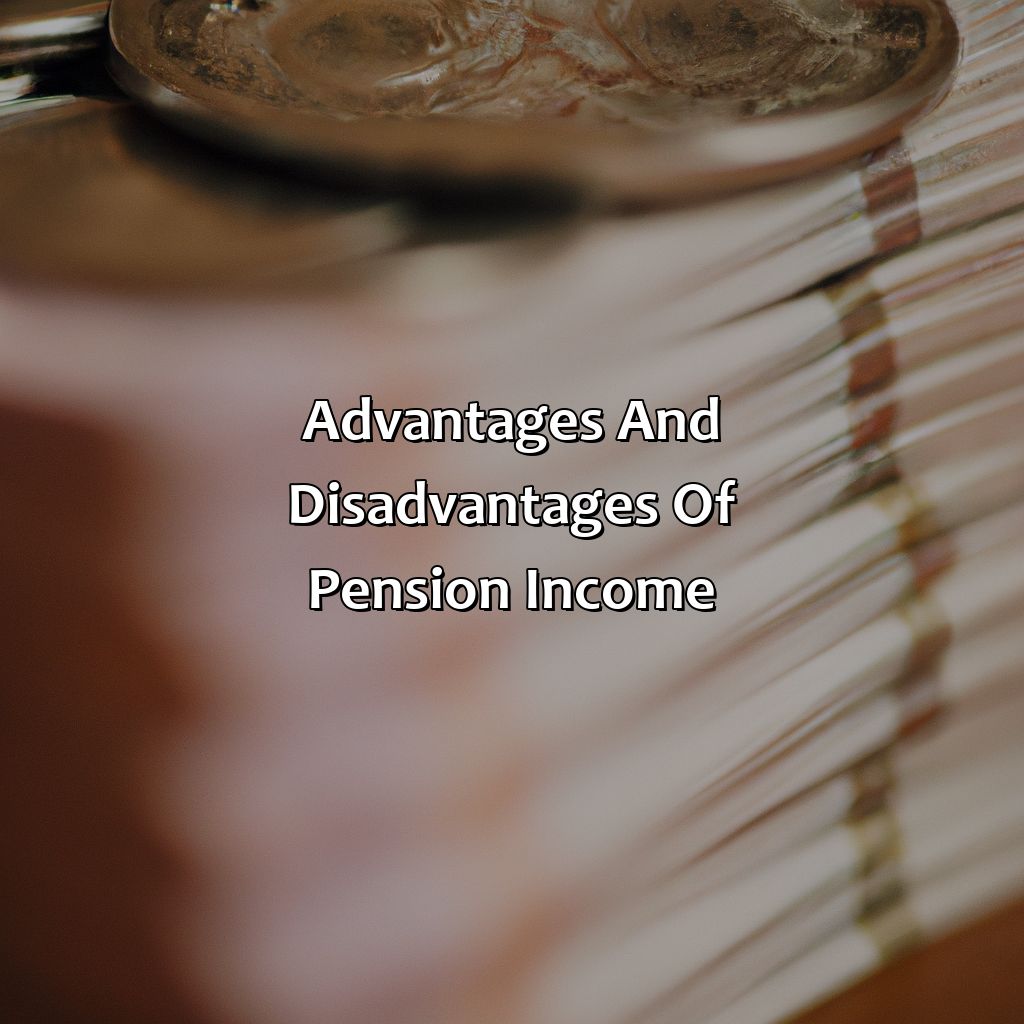
Image credits: retiregenz.com by Yuval Jones
Some Facts About Pension Income:
- ✅ Pension income is a regular payment received by an individual after retirement. (Source: Investopedia)
- ✅ Pension income can be received from various sources such as government pensions, employer pensions, and personal retirement savings. (Source: The Balance)
- ✅ Pension income is generally taxable, but may be partially or fully excluded from taxation depending on the country or state laws. (Source: IRS)
- ✅ Pension income can provide a stable source of income in retirement and help individuals maintain their standard of living. (Source: AARP)
- ✅ Pension income may have different payment structures such as annuities, lump sum payments, or a combination of both. (Source: Fidelity)
FAQs about What Is A Pension Income?
What is a pension income?
A pension income is a regular payment made to an individual, usually after retirement, based on the amount they contributed to a pension plan during their working years. It can come from either a government or private pension plan.
How is pension income calculated?
The amount of pension income an individual receives is usually based on a set formula that takes into account factors such as their length of service, average salary, and contributions made to the pension plan. The formula varies depending on the type of pension plan.
When can I start receiving pension income?
The age at which an individual can start receiving pension income varies by country and pension plan. In some cases, an individual can start receiving pension income as early as age 55, while in other cases it may be as late as age 70.
What is the difference between a defined benefit plan and a defined contribution plan?
A defined benefit plan guarantees a certain amount of pension income to an individual upon retirement, based on a set formula. A defined contribution plan, on the other hand, allows individuals to make contributions to their pension plan, but the amount of income they receive upon retirement is not guaranteed.
Can I receive pension income if I am still working?
Depending on the pension plan, an individual may be able to receive pension income while still working. However, in some cases, the amount of pension income they receive may be reduced if they continue to work past a certain age.
Is pension income taxable?
Yes, in most cases, pension income is considered taxable income and individuals are required to pay taxes on the amount they receive. The amount of taxes owed may vary depending on the individual’s tax bracket and the type of pension plan they have.
